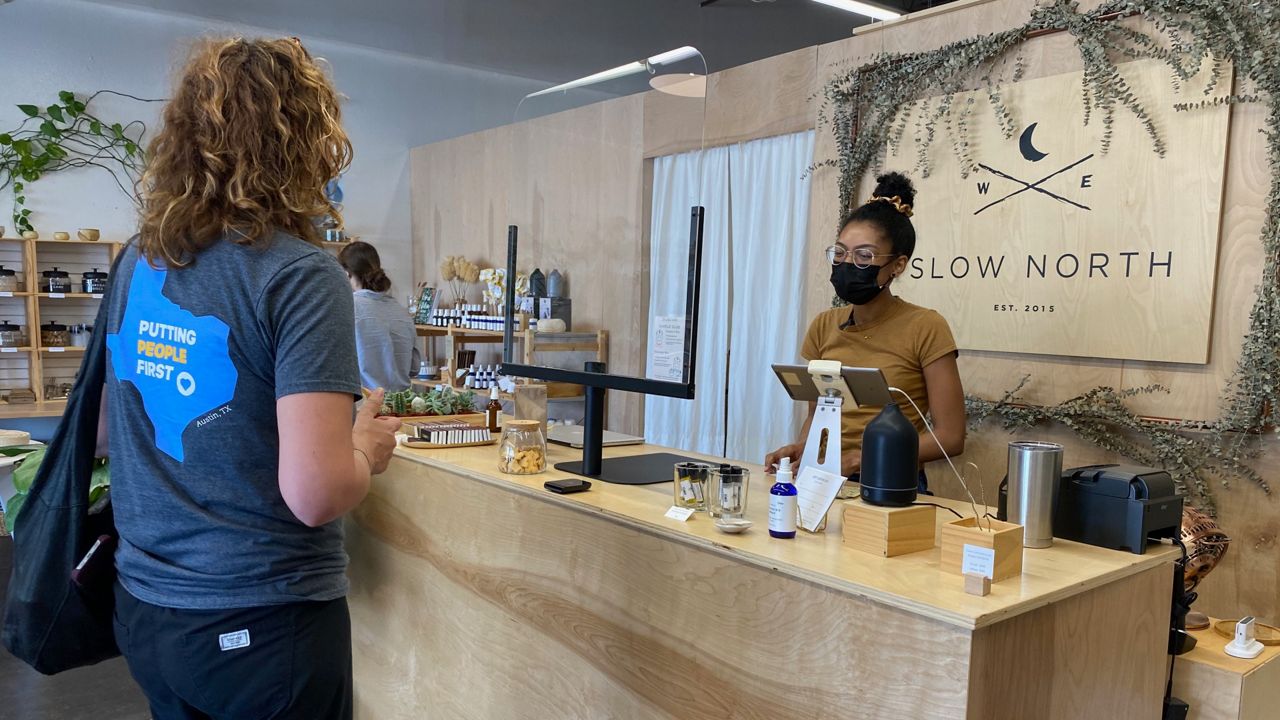How Texas contributes to plastic pollution
[ad_1]
What you need to know
- “Plastic Free July” aims to make companies responsible for plastic pollution through education.
- Texas is one of the largest plastics producers in the country.
- Slow Living encourages people to reduce plastic waste through products and packaging.
The international Plastic Free July campaign seeks to end plastic pollution at its source by educating consumers to avoid single-use plastic packaging and blaming companies and politicians for keeping them going.
Texas is playing a huge role in this crisis, but local companies are fighting back against plastic pollution by offering plastic-free alternatives.
Much like the Slow Food movement, Slow Living has the same idea – and that’s exactly what Slow North in North Austin is all about.
“We are just more conscious of our consumption and buy items that are built to last,” said Deputy Manager Ariel Griffin.
She started the “slow life” after working for a major skin care line and discovering how harmful the chemicals and packaging are to people and the environment.
“It was really interesting and enjoyable to educate people about how to reduce plastic waste,” said Griffin.
Not so long ago she was a customer, like all of the employees there. Just ask Amanda Gelalezha and she will tell you.
“I liked it so much that I just wanted to stay!” Said Gelalescha.
The East Austin boutique makes its own products and sells them through small and locally owned US vendors, all of which are plastic-free. The United States is the largest producer of plastic waste in the world for the advancement of science, according to a recent American Association report. Plastic packaging is the number one item that ends up in landfills.
“I realized how important it is to actually be sustainable for our body and the planet,” said Gelalezha.
But while zero-waste stores like Slow North are trending and awareness of single-use plastic is growing, plastic production with Texas is also one of the largest plastic producers in the country.
Environment Texas’s Luke Metzger can’t help but notice plastic pollution everywhere. In a matter of minutes, he managed to get two handfuls of single-use plastic from Lady Bird Lake in downtown Austin. But he says trash isn’t the problem.
“Just picking up rubbish is not enough, you know. We have to stop this pollution at its source,” said Metzger.
A study by the Center for International Environmental Law found that more than 99% of plastics are made from chemicals in fossil fuels.
The report said, “Cheap shale gas in the United States is fueling massive new investments in plastic infrastructure in the US and abroad, with $ 164 billion planned for 264 new plants or expansion projects in the US alone.”
Many of these factories are in Texas, including EXXOn, Dow Chemical, and Chevron Phillips, who have built several billion dollar chemical plants in Cedar Bayou, Freeport, Port Arthur, Bayport, and Ingleside, Texas in recent years.
“The fact that the big chemical companies and petroleum producers are donating millions of dollars in campaign contributions to state lawmakers certainly contributes to the state we are in right now,” said Metzger.
So getting rid of single-use plastic helps, but the responsibility does not lie with the consumer alone, and a “plastic-free” lifestyle is not possible for everyone, especially low-income families and color communities who are disproportionately affected by plastic pollution.
Griffin realizes that many people do not have access or financial resources to shop at stores like Slow North.
“I realize in a way that it is a luxury and a privilege to lead a zero-waste lifestyle,” she added.
Griffin and her colleagues hope that one day slow living may be an option that everyone can enjoy.
With more than 14.5 million tons in 2018, plastic packaging is the most common item in landfills.
According to Plastic Free July, half of all plastic production since 1950 has been in the past 13 years and only 9% of plastic is recycled worldwide.
[ad_2]

